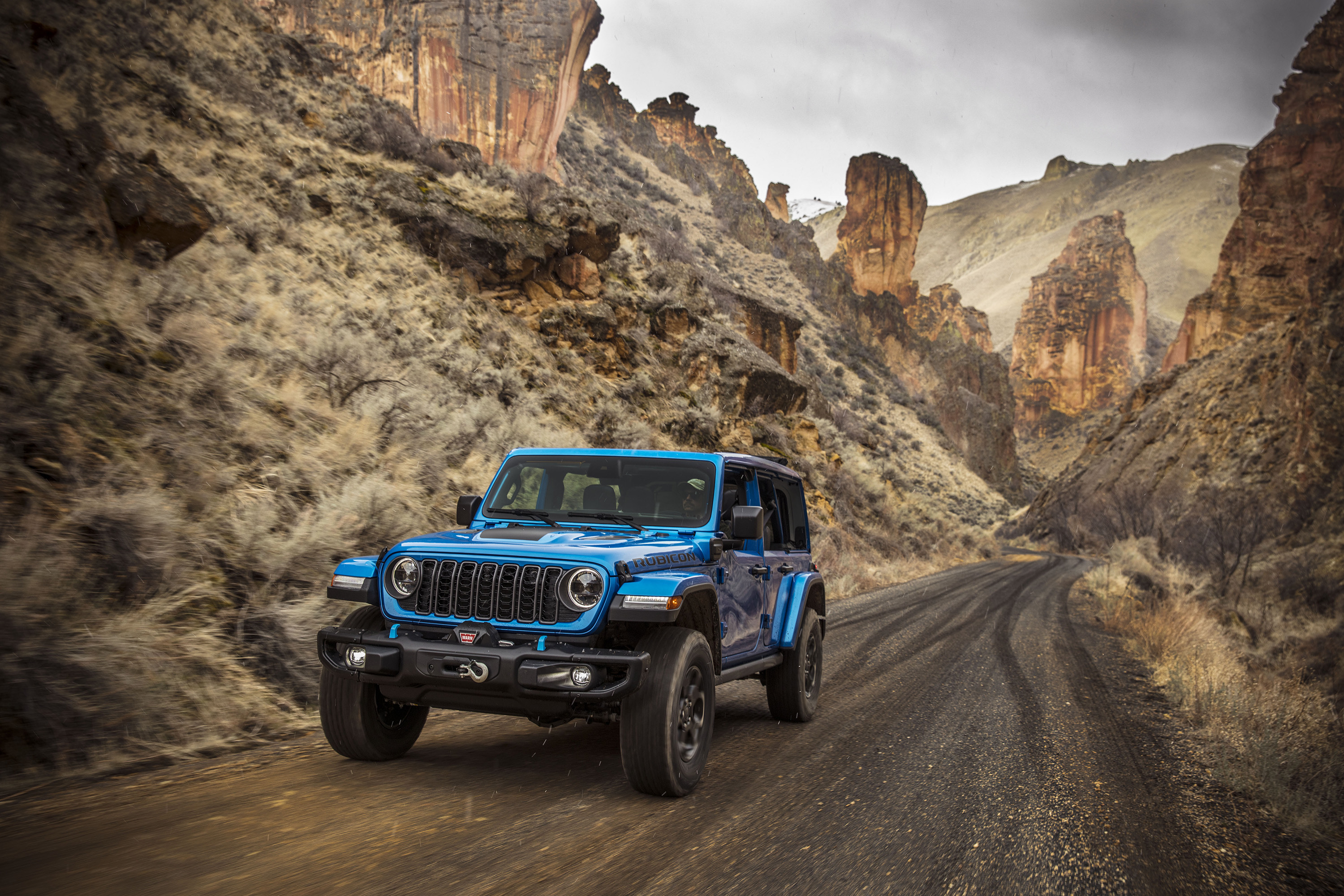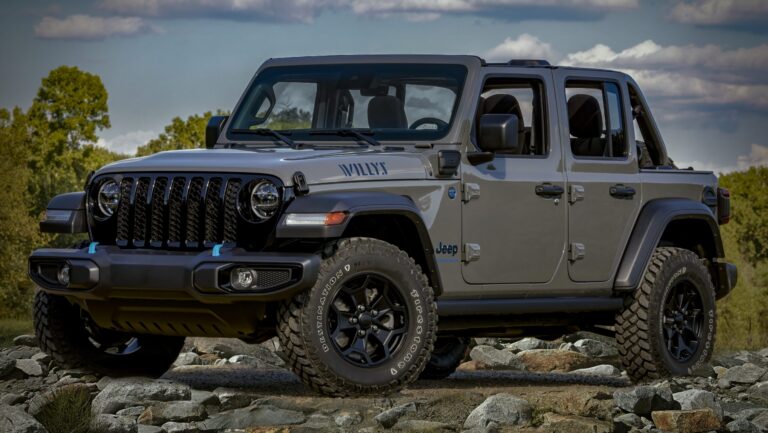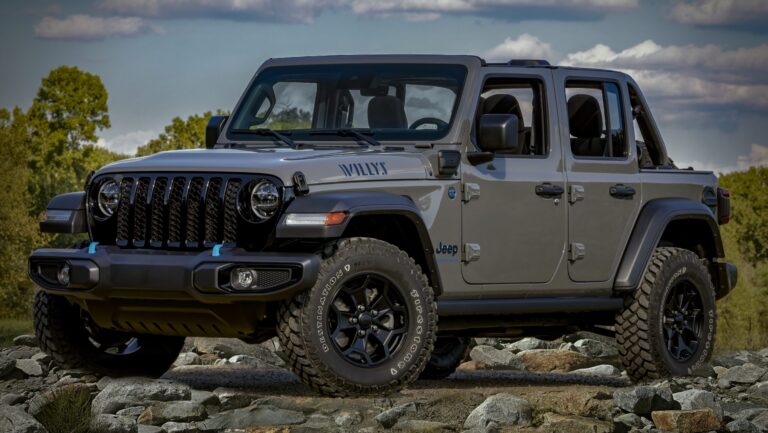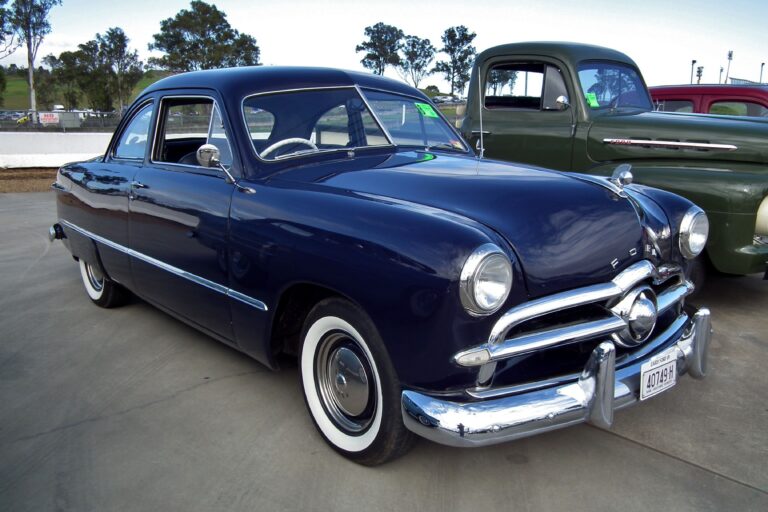Jeep Diesel Liberty For Sale: Unearthing the Efficient Off-Roader
Jeep Diesel Liberty For Sale: Unearthing the Efficient Off-Roader jeeps.truckstrend.com
The automotive landscape is ever-evolving, but some vehicles carve out a unique niche that continues to draw interest years after their production ceases. The Jeep Diesel Liberty, specifically the KJ generation equipped with the 2.8-liter Common Rail Diesel (CRD) engine, is one such anomaly. For sale in limited numbers, this particular variant of the compact SUV offers a compelling blend of Jeep’s legendary off-road capability with the robust efficiency and impressive torque of a diesel powerplant. It’s a vehicle that appeals to a specific segment of buyers: those who prioritize fuel economy, towing prowess, and a durable powertrain without sacrificing the adventurous spirit synonymous with the Jeep brand. If you’re considering a used SUV that stands apart from the gasoline-guzzling crowd, understanding the nuances of the Jeep Diesel Liberty is crucial.
I. The Allure of the Diesel Liberty: Why Choose One?
Jeep Diesel Liberty For Sale: Unearthing the Efficient Off-Roader
The decision to opt for a diesel-powered SUV, especially an older model like the Liberty CRD, stems from a set of distinct advantages that gasoline counterparts simply cannot match.
- Exceptional Fuel Efficiency: While not a hybrid, the diesel Liberty consistently delivers superior miles per gallon (MPG) compared to its gasoline siblings. Owners frequently report figures in the low to mid-20s combined, with highway cruising often pushing into the high 20s, a significant improvement for an SUV of its size and capability. This efficiency translates directly into lower running costs and fewer stops at the pump.
- Unrivaled Torque and Towing Capability: Diesel engines are renowned for their low-end torque, and the 2.8L CRD is no exception. This translates into effortless acceleration from a standstill and, more importantly, impressive towing capacity for its class. With a properly equipped Diesel Liberty, towing smaller boats, utility trailers, or even a compact camper becomes a breeze, making it an ideal choice for outdoor enthusiasts or those with light-duty hauling needs.
- Durability and Longevity: Diesel engines are generally built to withstand higher compression ratios and operate under more strenuous conditions, leading to a reputation for superior durability and a longer lifespan when properly maintained. A well-cared-for Diesel Liberty CRD engine can easily reach 200,000 to 300,000 miles, offering years of reliable service.
- True Off-Road Prowess: Despite its compact SUV classification, the Liberty is a true Jeep. Equipped with either the Command-Trac (part-time 4WD) or the more versatile Selec-Trac (full-time 4WD) transfer case, solid axles, and decent ground clearance, the Diesel Liberty is more than capable of tackling challenging trails, snow, or muddy terrain. The diesel engine’s torque also provides excellent crawl control in low range.
- Uniqueness and Niche Appeal: The Diesel Liberty was only sold in the U.S. for a brief period (2005-2006), making it a relatively rare sight. For those who appreciate unique vehicles and prefer to stand out from the crowd of mainstream SUVs, the CRD offers a distinctive choice.

II. Key Features and Specifications of the Jeep Liberty CRD (KJ Generation)
To fully appreciate the Diesel Liberty, it’s essential to understand its core specifications, particularly what sets it apart.
- Engine: The heart of the Diesel Liberty is the VM Motori R 428 DOHC 2.8-liter Common Rail Diesel (CRD) engine. This turbocharged, intercooled four-cylinder powerplant produces approximately 160 horsepower and a robust 295 lb-ft of torque. The common rail injection system ensures precise fuel delivery for efficiency and lower emissions.
- Transmission: All U.S.-spec Diesel Liberty models were paired exclusively with a 5-speed 545RFE automatic transmission, known for its reliability and smooth shifts.
- 4×4 Systems: Buyers could choose between:
- Command-Trac: A traditional part-time 4×4 system, ideal for off-road use but not suitable for dry pavement in 4WD.
- Selec-Trac: A more advanced full-time 4×4 system that allows for 4WD engagement on any surface, including pavement, offering greater versatility and safety in varying conditions. This system is generally more sought after.
- Suspension and Chassis: The Liberty features independent front suspension and a solid rear axle, providing a balance of on-road comfort and off-road capability. Ground clearance is respectable for its class, contributing to its trail-worthiness.
- Production Years: For the North American market, the Diesel Liberty was available only for the 2005 and 2006 model years. This limited production run contributes to its relative scarcity today.


III. What to Look For When Buying a Used Jeep Diesel Liberty
Purchasing any used vehicle requires diligence, but a specialized model like the Diesel Liberty demands extra scrutiny. A pre-purchase inspection (PPI) by a mechanic familiar with diesel engines, and ideally the VM Motori CRD, is highly recommended.
- Engine Specifics (The Most Critical Area):
- Timing Belt Service: This is paramount. The 2.8L CRD has a timing belt, not a chain, with a recommended replacement interval (typically 100,000 miles or 5 years, consult owner’s manual). If there’s no record of replacement, factor in the immediate cost (significant). A broken belt means catastrophic engine damage.
- EGR System: Check for excessive soot around the Exhaust Gas Recirculation (EGR) valve or intake manifold. These systems can clog over time, leading to reduced performance and error codes.
- Turbocharger Health: Listen for excessive whine or whistle, and check for blue or black smoke from the exhaust during acceleration. Minor smoke on startup is normal, but constant smoke indicates issues.
- Injector Condition: Rough idle, excessive white smoke, or a strong diesel smell can point to failing fuel injectors, which are costly to replace.
- Cooling System: Inspect hoses, radiator, and coolant reservoir for leaks or signs of neglect. Diesels run hot, and a healthy cooling system is vital.
- Transmission: Ensure smooth shifts in all gears, both up and down. Any slipping, hard shifts, or delay in engagement could indicate problems.
- 4×4 System: Engage all 4WD modes (2H, 4H, 4L, 4FT if Selec-Trac) and drive a short distance. Listen for unusual clunks, grinding, or binding.
- Rust: Inspect the frame, rocker panels, floorboards, and suspension mounting points, especially if the vehicle spent time in regions with road salt.
- Suspension and Steering: Check for worn ball joints, tie rods, control arm bushings, and shock absorbers. Listen for clunks or squeaks over bumps. Look for power steering fluid leaks.
- Electrical System: Test all lights, gauges, power windows, locks, and climate control. Ensure no persistent check engine lights or warning indicators.
- Maintenance Records: Demand comprehensive service records. This is invaluable for any used car, but absolutely critical for a diesel, as proper maintenance significantly impacts longevity and reliability.
- Fluid Levels and Condition: Check engine oil (ensure correct diesel spec), transmission fluid, coolant, brake fluid, and differential fluids.
IV. Owning a Diesel Liberty: Maintenance and Common Issues
Owning a Diesel Liberty is a rewarding experience for the right person, but it does come with specific maintenance considerations and potential challenges unique to diesel vehicles.
- Strict Maintenance Schedule: Diesels require timely and specific maintenance.
- Oil Changes: Use only CJ-4 rated diesel engine oil at the manufacturer’s recommended intervals (often 5,000-7,500 miles). Using incorrect oil can lead to premature wear.
- Fuel Filter: Regular replacement of the fuel filter (every 10,000-15,000 miles) is crucial to protect the sensitive fuel injection system from contaminants.
- Air Filter: A clean air filter is essential for engine performance and longevity.
- Timing Belt Service: As mentioned, this is the most significant scheduled maintenance. It’s a costly job (often $800-$1500+ depending on labor rates and parts) but absolutely non-negotiable.
- EGR Valve and Intake Manifold Clogging: Carbon buildup in the EGR valve and intake manifold is a common diesel issue. Symptoms include reduced power, poor fuel economy, and potentially a check engine light. Cleaning or replacement is often necessary.
- Hose Failures: Turbocharger hoses and intercooler hoses can degrade and crack over time due to heat and pressure, leading to boost leaks and reduced power. Cooling system hoses should also be inspected.
- Glow Plugs: These are essential for cold starts. If one or more fail, starting in cold weather can be difficult.
- Fuel Quality: Always use high-quality diesel fuel from reputable stations. Water in fuel can be devastating to the injection system.
- Parts Availability: While many parts are shared with the gasoline Liberty, some diesel-specific components (e.g., injectors, turbo, certain sensors) might be more expensive or require ordering from specialized suppliers. Fortunately, a strong aftermarket and online community support exist.
- Specialized Mechanics: Finding a mechanic experienced with the VM Motori CRD engine can be a challenge outside of major metropolitan areas. It’s wise to identify one before purchase.
V. Pricing and Market Trends for the Diesel Liberty
The price of a used Jeep Diesel Liberty can vary significantly based on several factors, including:
- Condition: Mechanical and cosmetic condition are paramount. A well-maintained vehicle with a clean interior and exterior will command a higher price.
- Mileage: Lower mileage generally means a higher price, though high-mileage diesels can still be strong if properly maintained.
- Maintenance History: Comprehensive, verifiable service records add significant value.
- Modifications: Aftermarket lifts, larger tires, or performance upgrades can either increase or decrease value depending on the quality of the modifications and buyer preference.
- Region: Prices can fluctuate based on local demand and supply.
- Selec-Trac vs. Command-Trac: Models with the Selec-Trac full-time 4WD system often fetch a slightly higher price due to their added versatility.
Generally, you can expect to find Diesel Libertys for sale ranging from $5,000 for a higher-mileage example in fair condition to $12,000 or more for a low-mileage, exceptionally well-maintained unit. They tend to hold their value relatively well compared to their gasoline counterparts due to their unique appeal and efficiency.
VI. Is a Diesel Liberty Right for You? Pros and Cons
Deciding if a Diesel Liberty is your ideal vehicle requires weighing its unique attributes against potential drawbacks.
Pros:
- Excellent fuel economy for an SUV.
- High torque and superior towing capability.
- Robust and potentially long-lasting diesel engine.
- True Jeep off-road capability.
- Unique and distinctive on the road.
- Strong community support and knowledge base.
Cons:
- Higher initial maintenance costs (e.g., timing belt, diesel-specific fluids).
- Potential for expensive repairs if neglected (e.g., injectors, turbo).
- Requires specific diesel fuel and correct oil specifications.
- Finding specialized mechanics can be challenging.
- Older vehicle means potential for general wear-and-tear issues.
- Can be noisier than gasoline engines, especially at idle.
Pricing Guide: Jeep Diesel Liberty For Sale (Estimated Values)
Please note: These are estimated ranges and actual prices will vary based on market conditions, location, specific vehicle history, and seller. This table provides a general guide.
| Condition Category | Mileage Range (Approx.) | Maintenance History | Notable Features/Issues | Estimated Price Range (USD) |
|---|---|---|---|---|
| Excellent | Under 120,000 miles | Full, documented | All services up-to-date, pristine interior/exterior, no known issues, possibly recent timing belt/EGR service. | $9,000 – $14,000+ |
| Good | 120,000 – 180,000 miles | Mostly documented | Minor cosmetic flaws, runs strong, some maintenance records available, may need minor deferred maintenance (e.g., brakes, tires). | $6,500 – $9,000 |
| Fair | 180,000 – 250,000 miles | Patchy records | Visible wear and tear, cosmetic damage, potential for upcoming maintenance (e.g., timing belt due, minor fluid leaks), may have minor CEL codes. | $4,000 – $6,500 |
| Poor/Project | Over 250,000 miles | Little to none | Significant cosmetic damage, major mechanical issues (e.g., known engine/transmission problems, electrical gremlins, rust), requires significant investment. | $2,000 – $4,000 (or less) |
Note: Models with Selec-Trac 4WD may command prices at the higher end of their respective categories.
Frequently Asked Questions (FAQ) about the Jeep Diesel Liberty
Q1: What years were the Diesel Liberty sold in the US?
A1: The Jeep Liberty CRD (Diesel) was sold in the United States for the 2005 and 2006 model years only.
Q2: What kind of fuel does the Diesel Liberty take?
A2: It requires #2 Diesel fuel. Always use high-quality diesel from reputable stations. Avoid using gasoline, as this will cause severe engine damage.
Q3: Is the timing belt a big deal on the Diesel Liberty?
A3: Yes, it is a very big deal. The 2.8L CRD engine uses a timing belt that needs to be replaced at specific mileage or time intervals (e.g., 100,000 miles or 5 years). Failure to do so can lead to catastrophic engine damage. Always verify timing belt service history before purchasing.
Q4: Is the Jeep Diesel Liberty good for off-roading?
A4: Absolutely! Despite being a compact SUV, it carries the Jeep DNA. With its robust torque, decent ground clearance, and available Selec-Trac 4WD system, it is very capable on trails, in snow, and in muddy conditions.
Q5: Are parts hard to find for the Diesel Liberty?
A5: Many common wear-and-tear parts are shared with the gasoline Liberty and are readily available. However, some diesel-specific components (e.g., injectors, turbo, certain sensors) may be more specialized and potentially require ordering from specific suppliers or online. A strong online community helps with sourcing.
Q6: What’s the typical fuel economy for a Diesel Liberty?
A6: Owners typically report combined fuel economy figures in the low to mid-20s MPG. Highway driving can often yield higher numbers, sometimes approaching 28-30 MPG, making it significantly more efficient than its gasoline counterparts.
Concluding Summary
The Jeep Diesel Liberty, while a niche vehicle from a bygone era, remains a compelling option for those seeking a unique blend of efficiency, power, and rugged capability. Its robust VM Motori CRD engine offers impressive torque for towing and off-road excursions, coupled with fuel economy that sets it apart in the compact SUV segment. However, prospective buyers must approach a purchase with diligence, prioritizing maintenance history, especially regarding the critical timing belt service, and understanding the specific care requirements of a diesel engine. For the informed buyer willing to commit to proper maintenance, the Jeep Diesel Liberty can be a remarkably rewarding and enduring vehicle, ready for both daily commutes and adventurous escapes.




